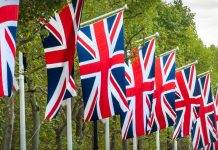Latin America has begun to shape a large majority of online casino operators and suppliers’ expansion efforts as new and soon-to-be regulated markets in the region continue to escalate industry anticipation
Before the industry’s key players head for Lisbon next month for SBC Summit, we spoke to proud Brazilian Aline Oliveira, Head of PPC at ComeOn Group, about the importance of offering a “culturally attuned” brand across Latin America, the “progressive” potential of Brazil’s inbound igaming market and the “rapid rise of crash games”.
How can brands tailor themselves to the Latin American market? What differences are seen in the various markets across the region when it comes to appealing to players?

Latin America boasts a vibrant culture and breathtaking natural landscapes. Beyond common stereotypes, the region presents a unique opportunity for the online gambling market, driven by its population of over 660 million. According to a recent Vixio report, Latin America’s regulated online gambling market is expected to quadruple in size, reaching $6.75bn in annual revenue by 2027. Brazil and Mexico are projected to generate almost half of the global online gambling traffic, and more countries in the region are moving toward regulation.
Several factors contribute to the growing interest of gambling brands in Latin America, including high digital penetration, a passionate sports fan base, and an evolving regulatory landscape. Sports betting is especially popular, with soccer leading the way, though other sports also have significant followings. The region’s high smartphone penetration rate makes mobile optimisation crucial.
Additionally, Latin America’s diverse cultures, each with unique values and traditions, requires a deep understanding of local preferences and regulations. Brands must tailor their marketing and products to resonate with local audiences. Below, I will highlight key characteristics and differences in major Latin American markets.
Mexico, the second-largest economy in Latin America, has a mature market with a robust online gambling culture. Gambling contributes 4% to the country’s GDP, with 65% of Mexican adults having gambled in the past year, according to an ENV Media 2023 report.
Government data values the regulated gambling industry at approximately $2.18bn. While there is no federal regulation, individual states regulate online gambling, creating both opportunities and challenges. Industry bodies, such as the APJSAC, distinguish two main macro segments among online operators: 60% sports and 40% traditional casino games like blackjack, poker and slots. Mexican online casinos follow global trends but emphasise content localisation, often incorporating cultural references such as the Incas, piñatas and Día de los Muertos themes.
Colombia has been a pioneer in online gambling regulation since 2016, making nearly all igaming activities legal. Colombian consumers are tech-savvy and early adopters of new technologies, with a strong preference for sports betting and growing interest in casino games. The country’s well-established regulatory framework attracts international operators.
Argentina, in contrast, lacks a federal regulatory framework for online gambling, with each province setting its own regulations. This diversity creates a complex landscape. Argentine consumers are passionate about soccer and have a strong gambling culture, being price-sensitive and valuing promotions. Despite its potential, the inconsistent legal framework has made operators hesitant to enter the market.
Brazil is the new rising star of the industry. As the largest market in Latin America, it has recently introduced favourable regulations for online gambling, presenting a significant opportunity.
What opportunities does the Brazilian market present and how can marketers take full advantage?
Brazil is the largest market in Latin America, with nearly 217 million inhabitants and growing interest in online gambling. Sports betting was legalised at the end of 2023, followed by recent regulatory updates on 31 July 2024, the Normative Ordinance 1,207 has established guidelines on allowed online casino games. While the regulatory landscape is still evolving, the government’s progressive stance on igaming indicates a supportive environment for the industry.
The online gambling market in Brazil is experiencing significant annual growth of 16.51%, projected to reach $4.03bn in revenue by 2029, according to Statista. Currently, sports betting has roughly double the volume than online casinos, fueled by a passionate sports fanbase.
From my discussions with igaming marketers, the main challenge in Brazil at the moment is balancing cost per acquisition and lifetime user value for profitability. Understanding the cultural nuances of this diverse country is a starting point for marketers. As a proud Brazilian, I am glad to share some insights about my country. According to Google’s 2023 insights, gamblers in Brazil are predominantly males, aged 25-44, coming mainly from state capitals, motivated by adding excitement to sports events and the prospect of making money.
Refining geo-targeting can be helpful for marketers in this vast market, with most real-money players hailing from São Paulo and Rio de Janeiro. The peak gaming hours are in the afternoon and evening, with the majority of gaming sessions taking place from Friday to Sunday.
Localisation is key to connecting with the Brazilian audience, requiring more than just having campaigns and websites with Portuguese language. Essential elements include live support in Portuguese, popular payment methods like ‘PIX’ and ‘boleto’, plus betting offers covering Brazilian leagues, particularly the national league, Brasileirão, as soccer is the most popular sport. Moreover, segmenting bonuses and sports offers on a regional level, leveraging popular local teams and local events can significantly enhance brand resonance.
The smartphone is one of the primary devices around the world used to place bets. For Brazil, smartphone usage is projected to reach nearly 97% by 2029, according to Stadista. Therefore a mobile-first strategy is essential.
Despite the rise of digital media, TV remains influential in Brazil, and sports sponsorship is a primary strategy for brands with the highest market share. Leveraging on popular influencers has proven effective, the main recent highlight in this area is the sports YouTube influencer, CazéTV. Strong brand awareness is crucial to succeed in this market.
A few peculiar points about Brazilian culture: We are superstitious and we love campaigns that connect on an emotional level and make us proud of our culture, regionally and nationally. Authentic brands that communicate in a simple and casual manner resonate better with the Brazilian audience. There are differences in vocabulary and expressions across regions. A pinch of humorous and creative elements into advertising campaigns can also help connect with Brazilians.
In the online casino sector, slots, roulette, blackjack and other live games are popular, but the rapid rise of crash games has become a recent phenomenon. Simple yet intense, crash games appeal to younger generations and new users. As Brazil’s regulatory scenario and user preferences evolve rapidly, it is crucial for marketers to stay informed to ensure a compliant and effective strategy.
How important is understanding local culture for presenting a strong brand identity?
Local cultural intelligence is the keystone of a successful gambling brand. Prior to entering a new market, my team and I conduct in-depth market research to gain a comprehensive understanding of local culture, competitive dynamics and regulatory frameworks.
This understanding can provide a competitive edge allowing us to offer tailored campaigns and experiences. The ComeOn brand is a great example of successful brand adaptation strategy. Currently operating in seven markets across Europe and North America, its communication is well adapted to local preferences and cultural sensitivities, meanwhile maintaining a solid global brand identity.
To thrive, operators must transcend mere market entry and cultivate a deep-rooted connection with their audience. Effective communication in the local language, including slang and idiomatic expressions, tailored to cultural nuances ensures clarity and resonance.
Ultimately, a culturally attuned brand is better positioned to compete, innovate, and sustain long-term success.

















